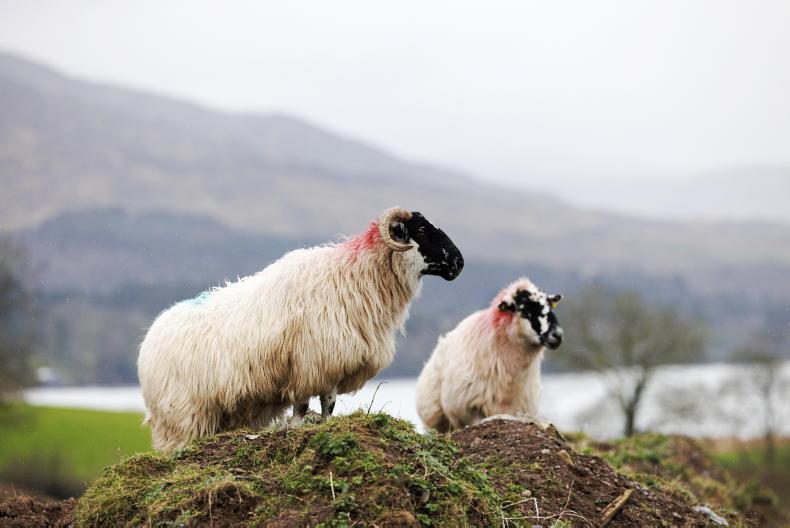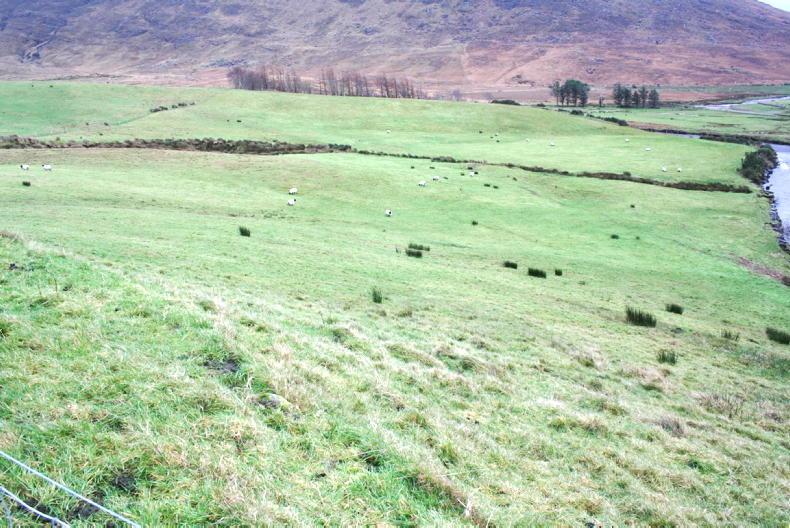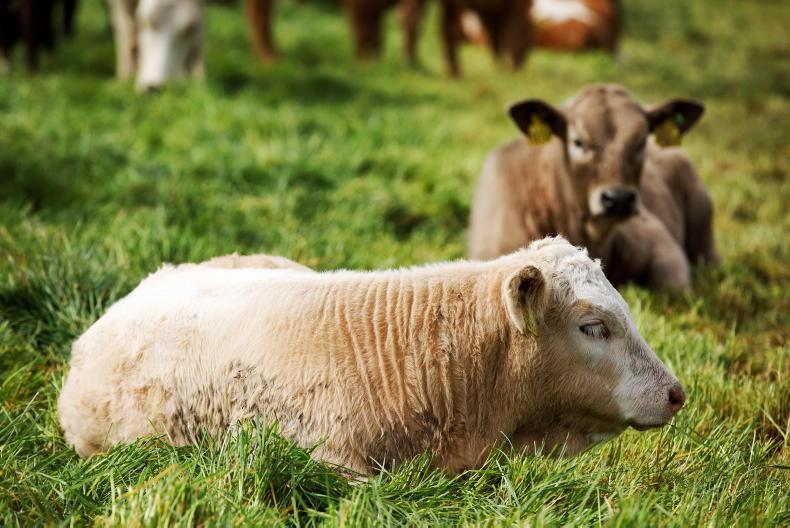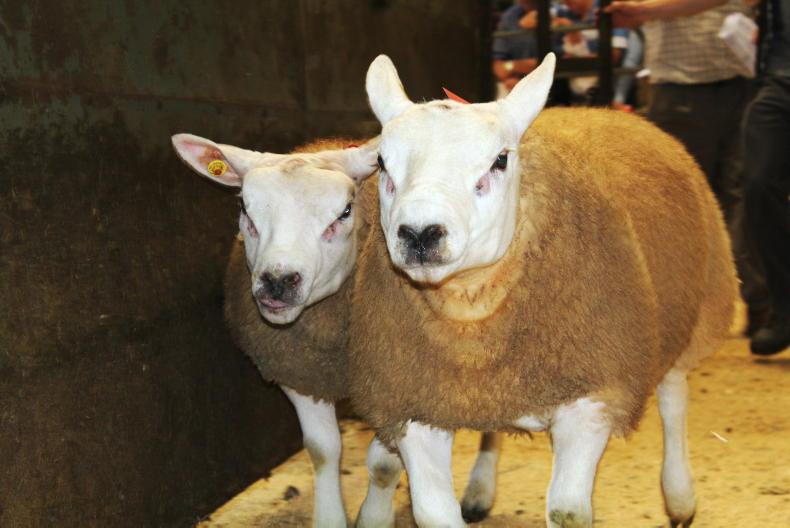The latest intake of applications to the Organic Farming Scheme (OFS) will close in just a few weeks on Friday 29 November. Reports from advisers and farmers point to a significant number of sheep farmers considering joining the scheme in the latest intake.
Over 40% of the current 5,000 farmers farming organically or in conversion have sheep as their primary enterprise, with a significant percentage of suckler/beef farms running sheep as a secondary enterprise.
Figures from the Department show that there are upwards of 200,000 ewes kept on organic farms, with this figure likely to grow considerably in Ireland’s push to reach 7.5% of utilisable agricultural area farmed organically by 2027 and 10% by 2030.
There are many questions being raised in meetings currently being held by organic bodies, Teagasc and the ACA. This article provides a flavour of the questions and answers.
Q. If I join the OFS now will I always be guaranteed the same level of payment?
A. The payment rates in the OFS will be present for the lifetime of the current CAP Strategic Plan. Given Ireland’s and the EU’s focus on increasing the area of lands farmed organically, it is likely that a substantial percentage of CAP funds will be targeted to the sector, but there is no guarantee. Farmers sign up to a contract for five years, and if they wish to do so can return to conventional farming thereafter.
Q. I am a participant of the Agri-Cimate Rural Environment Scheme (ACRES) co-op entry but have been left disillusioned with poor scores and delayed approval of NPIs. As far as I can see it will be very challenging to get a reasonable payment in ACRES and I am considering entering organics. What way do payments work, is it the highest payment that I receive from ACRES/organics or do I need to withdraw from ACRES to get the higher payment?
A. You can be a participant in ACRES and the OFS but there are many actions in ACRES and area-based payments that supersede the OFS payment.
This is not as big of an issue for farms with greater than 70ha, or if you are foregoing a lower OFS payment for an ACRES payment, but it is a big factor for average-sized holdings. It is worth sitting down with your adviser and calculating what the best step forward is.
Q. A large portion, maybe over 50% of my holding is commonage lands. Can I claim payment on this land?
A. Under the OFS, commonage lands are not deemed eligible for payment, nor are lands with grazing rights, rented lands or non-organic productive lands. It is permitted to graze commonage areas once sheep are adequately hefted, but no payments will occur.
Q. Can I convert the non-commonage ground to organic sheep production and continue to farm commonage lands conventionally with non-organic sheep?
A. Partial conversion of the farm/holding is allowed, but subject to specific conditions outlined in the scheme terms and conditions.
These state that if both organic and conventional livestock are to be farmed then different species must be involved, e.g. sheep and cattle.
If both organic and conventional crops are to be produced then different species of plant, or different varieties that can be easily differentiated at all stages of growth and production must be used. So the answer to your question is no.
Q. There is €10m extra allocated to organics in 2025. Will it be the same as last year where everyone that applies will be accepted in to the scheme?
A. The numbers accepted depend on how many farmers apply and the size of farms that apply. Going on recent intakes, it is possible that between 800 and 1,000 farmers will be accepted, similar to what applied in 2023 for entry in 2024.
If this intake is oversubscribed and there is ranking and selection applied to score applications, then horticulture, dairy and tillage farmers, along with the most highly stocked farmers, get preferential access.
Q. Can I still buy conventional stock next year if I join the scheme?
A. No, once you are notified you have been accepted in to the scheme you can only buy organic or in-conversion stock.
There is a derogation which may be granted by your organic certification body, which permits the purchase of breeding animals (up to 20% replacements which have not previously lambed) where it is deemed organic animals of such type cannot be sourced. This is granted by your certifying body.
Q Will the cattle and sheep that I already have be deemed organic once I have my two-year conversion complete?
A. These animals never become organic and as such cannot enter the organic food chain. Organic standards apply from once you join the scheme and once you have progressed through the conversion phase their progeny will be deemed organic.
Q. Does the housing rule requiring 50% of floor space to be solid floored and bedded apply to sheep? Can I use non-organic straw or outwinter sheep?
A. The 50% bedding requirement applies to all housed animals. Non-organic straw can be used. Note that a higher space allowance of 1.5m² is required for ewes and 0.35m² for lambs. Sheep can be outwintered as per nitrates regulations.
Q. Can veterinary medicines still be used or are they entirely prohibited?
A. The use of veterinary medicines is only permitted on animal welfare grounds and where recommended by your vet.
Withdrawal periods are typically doubled, and there is a maximum timeframe/maximum number of treatments before animals will be excluded from entering the organic food chain.
Areas where veterinary medicines are likely to be required will be addressed in your animal health plan, which your vet must sign off on.
Q. Is there any allowance to use herbicides similar to animal health treatments? I have marginal lands and keeping rushes in check is a big challenge.
A. The use of herbicides and pesticides is strictly prohibited. Rush management must take the form of topping, improving soil pH, drainage, crop rotation etc.
Q. As far as I can see there is no major premium for organic produce and they cost more to finish. Can I sell stock conventionally?
A. There is an organic premium in at least one sheep plant offering up to a 15% premium on the conventional price up to an upper limit, and Good Herdsman has typically paid a premium for beef although this has been lower recently.
Organic markets are being developed, which will hopefully help to provide a premium in the future. The answer to your direct question is there is currently no mandatory requirement to sell stock in to organic markets.
Q. Can I import organic manures from non-organic farms?
A. Yes, you can import organic manures but only from grass-based systems – i.e confinement systems such as pig or poultry are not eligible to import organic manures from.










SHARING OPTIONS